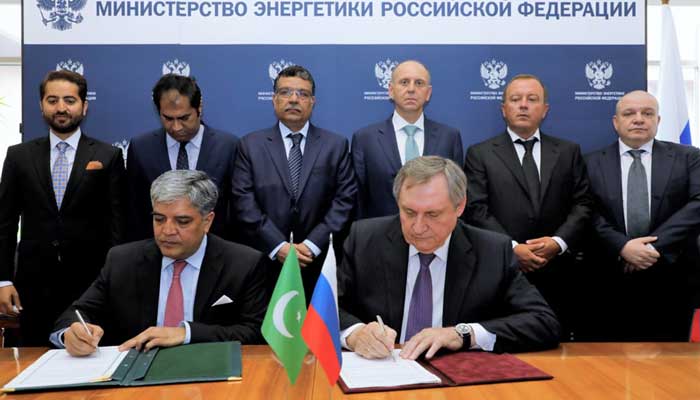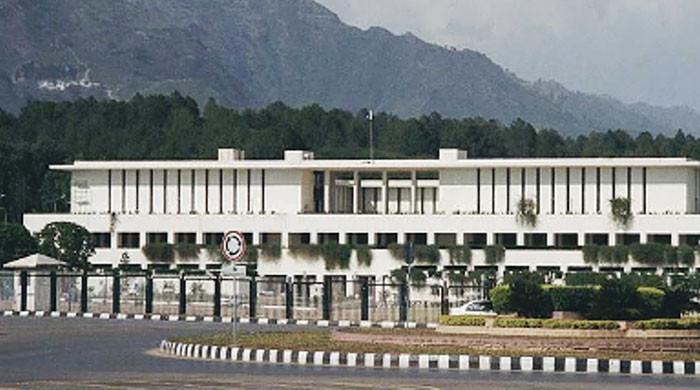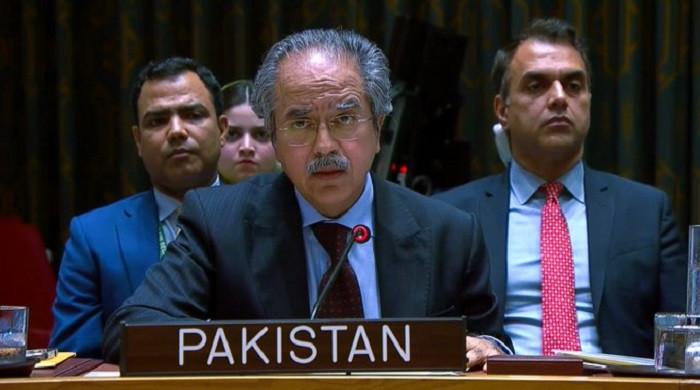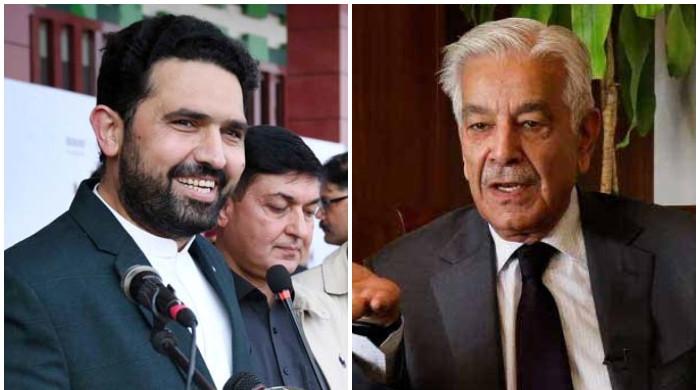North-South Gas Pipeline Project to be called 'Pakistan Stream Gas Pipeline'
Pakistan, Russia sign protocol agreement on amendments to North-South Gas Pipeline Project
May 28, 2021

- Pakistan, Russia sign protocol agreement on amendments to North-South Gas Pipeline Project.
- Agreement was signed by Pakistani envoy Shafqat Ali Khan and Russia's Energy Minister Nikolay Shulginov.
- Pakistan Stream Gas Pipeline will run from Karachi to Kasur for transportation of gas.
Islamabad and Moscow on Friday agreed to change the name of the North-South Gas Pipeline Project to the "Pakistan Stream Gas Pipeline" in a protocol agreement signed in the Russian capital.
A tweet issued by the Pakistani mission in Moscow said that Pakistan and Russia signed a protocol on the amendments to the agreement on North-South Gas Pipeline Project.
The agreement was signed by Pakistani envoy Shafqat Ali Khan and Russia's Energy Minister Nikolay Shulginov.
"The pipeline will run from Karachi to Kasur for transportation of gas. The Project is a flagship strategic venture between Pakistan and Russia and will strengthen bilateral cooperation," said the mission.
The Pakistan embassy stated that Islamabad desires a "strategic partnership" with Moscow. It also said that Pakistan "looks forward to enhanced bilateral relations in all fields of mutual interest".
Russia approves new structure for North-South Gas Pipeline with Pakistan
Last year in November, the North-South Gas Pipeline project received a new push after Russia gave it a new structure.
The Russian Ministry of Energy has offered TMK and ETK with its state-owned company Federal State Unitary Enterprises (FSUE).
Senior officials had told The News that the project had seen “many upheavals but the Russian side remained committed to the project knowing the fact that Pakistan got structures changed several times".
“Officials in the Petroleum Division, previously influenced by a certain lobby, sought inclusion of ETK in place of TMK through wrong accusations that top man of TMK, Pumpyansky, is on the watchlist of US, and afterwards the Russian MoE extended the structure with ETK as was demanded by top mandarins.”
Read more: Russian ambassador calls on General Qamar Javed Bajwa
“But later on, sense prevailed with inputs from international law firms which opined that TMK is a better structure for the project, and the same was found in internal inquiries coupled with due diligence on part of some powerful circles.”
With a net worth of $9 billion, TMK is listed at the London Stock Exchange and has reported profits $1 billion. The company is seen to have positive track record with US government by the S&P and Moody’s. Publicly available data shows it hasn’t been subjected to any investigation or sanction by the US administration.
ETK is not a listed company hasn’t been rated by S&P or Moody’s, The News had reported.
“The Russians provided ease to Pakistan by offering companies TMK and ETK in the structure under state-owned company FSUE – putting the ball in Pakistan’s court to select a better structure for the project,” said the official.
“Russia also agreed on Pakistan’s proposal on equity structure.”
The official said after the Supreme Court decision on GIDC, the government wants to keep majority equity share in the project and proposed 51% share for Pakistan while Russia gets 49%.
Read more: Russia vows to help Pakistan on economic, vaccine, and energy fronts
The official appreciated Russia for not backing out despite Pakistani government frequently demanding changes in structure in the last five years.
Moscow has finalised its technical delegation with representatives each from EKT and TMK, which is to land in Pakistan somewhere in the third week of the current month and will negotiate for alteration in the IGA (Inter-Governmental Agreement) and will finalise the way forward with timelines for initiation of the project till its execution and making the project operational.
Originally, the pipeline of 1,100 kilometres was to be laid with a diameter of 42 inches with capacity to transport 1.2 billion cubic feet RLNG per day.
Now Pakistan wants to increase its capacity to transport RLNG of 1.6 bcfd with a diameter of either 52 inches or 56 inches.
The Pakistan side has estimated the project’s cost at $2.25 billion but it is yet to be finalised with input from the Russian side.











